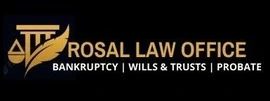When individuals or businesses face overwhelming financial distress, bankruptcy can serve as a potential solution to eliminate or restructure debt. However, one of the most pressing concerns for those considering bankruptcy is whether back taxes can be discharged. Taxes are a unique type of debt with different rules compared to credit card debt, medical bills, and personal loans. Understanding how back taxes fit into the bankruptcy process is crucial for anyone struggling with tax debt.
Definition of Bankruptcy and Its Types
Bankruptcy is a legal proceeding that allows individuals or businesses to seek relief from their debts under the supervision of a court. The two most common types of personal bankruptcy are Chapter 7 and Chapter 13, each with different implications for tax debt.
- Chapter 7 Bankruptcy: This is a liquidation bankruptcy where non-exempt assets may be sold to pay off creditors. In some cases, back taxes can be discharged if they meet specific conditions.
- Chapter 13 Bankruptcy: This is a reorganization bankruptcy that allows debtors to create a repayment plan to pay off their debts over three to five years. Tax debts that are not dischargeable in Chapter 7 may be repaid under this plan.
A bankruptcy lawyer in Palm Bay can provide guidance on the best option based on individual circumstances, ensuring that all legal requirements are met for a successful case.
Can Back Taxes Be Discharged in Bankruptcy?
The dischargeability of back taxes in bankruptcy depends on several factors. Generally, income taxes may be eligible for discharge under Chapter 7 if they meet the following criteria:
1. The Tax Return Filing Requirement – The tax debt must be related to a return that was filed at least two years before filing for bankruptcy. If the return was never filed, the debt is not dischargeable.
2. The Three-Year Rule – The tax debt must be at least three years old. This means that the tax return was due at least three years before filing for bankruptcy.
3. The 240-Day Rule – The IRS must have assessed the tax debt at least 240 days before filing for bankruptcy.
4. No Fraud or Willful Evasion – If the taxpayer engaged in tax fraud or willfully attempted to evade paying taxes, the debt is not eligible for discharge.
How Chapter 13 Bankruptcy Affects Tax Debt?
Unlike Chapter 7, which may eliminate certain tax debts, Chapter 13 focuses on repayment. Under a Chapter 13 plan, tax debts that are not dischargeable must be paid in full over the course of the repayment plan. The benefit of Chapter 13 is that it allows for structured payments and prevents aggressive collection actions from the IRS, such as wage garnishments or bank levies.
What Taxes Are Not Dischargeable?
While some income tax debts can be discharged, other types of tax obligations remain non-dischargeable in bankruptcy, including:
- Payroll taxes
- Trust fund taxes (e.g., taxes collected from employees but not paid to the IRS)
- Tax penalties on non-dischargeable taxes
- Property taxes incurred within one year prior to bankruptcy
The Role of the IRS in Bankruptcy Cases
When filing for bankruptcy, the IRS becomes a creditor in the case. In Chapter 7 cases, if tax debts meet the discharge criteria, they are eliminated. However, in Chapter 13 cases, the IRS must be included in the repayment plan, and the debtor must remain current on all new tax obligations during the plan period.
The IRS may also file a tax lien before bankruptcy is filed. If a tax lien is in place, even if the tax debt itself is discharged, the lien may remain attached to the debtor’s property, which means the IRS could still collect by selling the property.
Alternatives to Bankruptcy for Tax Debt Relief
For those who may not qualify for bankruptcy or wish to avoid it, other tax relief options are available, including:
1. Offer in Compromise (OIC): This allows taxpayers to settle their tax debt for less than the full amount owed if they can prove financial hardship.
2. Installment Agreements: The IRS offers payment plans that allow taxpayers to pay their debt over time.
3. Currently Not Collectible (CNC) Status: If a taxpayer cannot afford to pay, the IRS may temporarily halt collection efforts.
Consulting an Attorney for Bankruptcy and Tax Relief
Given the complexity of bankruptcy laws and tax debt rules, consulting an attorney is essential. An experienced bankruptcy attorney can assess a debtor’s financial situation and determine whether bankruptcy is the best course of action or if alternative tax relief solutions should be explored.
Conclusion
While back taxes can sometimes be included in bankruptcy, they must meet strict criteria to be discharged under Chapter 7. Chapter 13 provides a structured repayment plan but does not necessarily eliminate tax debt. Understanding the nuances of tax dischargeability is essential for making informed financial decisions. If you are struggling with tax debt and considering bankruptcy, seeking professional legal guidance can help ensure the best possible outcome for your financial future.





